ooooooooooooooooooooooooooooooooooooooooooooooooooooooooooooooooooooo
CRITICA EN EL PERIODICO "ABC DE SEVILLA" (1-3-1958)
Supone esta grandiosa producción, una indiscutible superación de cuanto hasta ahora se había llevado a la pantalla respecto al tena sugestivo y humano, del ocaso artístico de quienes colmados de felicidad y aptitudes, se mantienen aureolados por la fama, y mientras poseen el poder de atraer a las masas, luego pretende, cuando los triunfos llegan a menos y las multitudes se apartan de su figura, ya marchita, reverdecer viejos laureles. Esta es la valiente leyenda con que Cifesa se enfrenta en la película estrenada ayer en el Coliseo, y justo es afirmar que es el difícil empeño cinematográfico, logró un éxito total y definitivo. cuanto se desarrolla en el filme tiene el máximo de humanidad y auténtico realismo y nada ocurre que no obedezca al sentido de la expresividad, a la sucesión de imágenes que por si solas relatan y desenvuelven un tema por mortificante que perezca, y al desenlance lógico, que es cuanto exige la técnica del cine para lograr destacados triunfos. Así, en "La estrella" se expone con exactas tonalidades el crepúsculo de una genial artista que no puede doblegar su fama y su propio carácter a la realidad de un echo indubitable: la pública negación a sus esfuerzos por sostener aptitudes y vigores desaparecidos. Y el logro de los productores de esta sensacional película consiste en hallar a la mujer donde no había ya más que el resabio, hecho de soberbia, ante el temor a la humillación. Precisamente, y ello es como una continuación del elogio a la interesante narración, encarna a la protagonista, la insuperable Bette Davis, de cuyas aptitudes de actriz no hay que hacer méritos. Si acaso sólo registrar que en este ocaso artístico que tan dignamente se nos relata, ninguna otra hubiese salido tan airosa de un papel sobrado de crudeza y obsesión destructiva, y como final, compresión, humanismo y amor. Por ello, bien ganado tiene el tercer Oscar, que puede ostentar en su historia artística con indudables méritos. Y no puede dejarse de mencionar la formidable labor del magnifico actor Sterling Hayden, y juntos a ellos, intervenciones de tanta responsabilidad como las de Natalie Wood y Warren Anderson para que el éxito de esta sensacional película sean tan sugestivo como impresionante.- S.
oooooooooooooooooooooooooooooooooooooooooooooooooooooooooooooooooooooooooo
1952 Davis Earns Her 9th Oscar Nomination . . .
During "The Star," Bette Davis commands the lead as Margaret Elliott, a Hollywood, Oscar-winning has been. The show is about handsome Jim Johannson (Sterling Hayden), a boat mechanic & fan of Elliott's, teaching her that there's more to life than being an actor. The adorable adolescent, Natalie Wood, plays Gretchen, Elliot's beloved daughter.
During "The Star," Bette Davis commands the lead as Margaret Elliott, a Hollywood, Oscar-winning has been. The show is about handsome Jim Johannson (Sterling Hayden), a boat mechanic & fan of Elliott's, teaching her that there's more to life than being an actor. The adorable adolescent, Natalie Wood, plays Gretchen, Elliot's beloved daughter.
Elliot can't deal with the mid-life transition off the set & into retirement. She's so resentful she becomes a drunkard. During a classic scene, Davis uses one of her own Oscars, propped on the dashboard of Elliot's car & heads for the posh homes of the stars in Beverly Hills saying, "Come on, Oscar, let's you & me go get drunk!" Davis' portrayal of a fallen actor makes her seem older than she actually was. Of all the characters Davis embodied, I think she got Margaret Elliot spot-on! After she gives a faux sight-seeing tour of the stars' mansions to no one while drunk & driving, she lands in jail. That's when Jim bails her out, then takes her to his home on the ocean docks. The rest of the story is worth knowing.
Interestingly, this 1952 performance earned Davis her 9th Oscar nomination at 44yo. She was anything but washed up like the character she played, with 43 years of acting in movies & many more nominations & awards left to go. Davis was less than half-way into her acting career!
oooooooooooooooooooooooooooooooooooooooooooooooooooooooooooooooooooooooooo
"I Know Lance Garfield, pretty well...you don't know HOW well I know your brother".
I loved this movie! I campaigned 20th Century Fox to bring it out on video because my copy was on BETA and my Betamax has long since broke. What's interesting about this movie is that it was first offered to Joan Crawford who turned it down flat. At the same time, "Sudden Fear" was presented to Davis, who didn't like the script. Davis also turned down "Come Back, Little Sheba". Well, guess what? Davis accepted "The Star", Joan accepted "Sudden Fear" and Shirley Booth got the chance to repeat her stage success in "Sheba" and all three got nominated for the Best Actress Oscar in 1952! Amazing.
Bette Davis did everything but hit the ceiling in "The Star". She was trying her best to give an Academy Award-type performance. And it was. Margaret to her agent: "You can do everything but get me a picture, can't you?! Harry Stone, the big star-maker, the gentleman agent, my friend!" That was one of the early great lines uttered by has-been movie queen, Margaret Elliot. There were many more to come. Davis turned in a realistic performance as the aging star and conveyed the frustrations that many older performers feel when they realize the truth about their failing careers.
Margaret is torn between her fear of age, her devotion to her young daughter and her drive to be "put back where I belong." She is saddled with a family that she had cared for, financially, since she became a star and their inability to understand that she was no longer a rich and famous actress. I loved the scene when she throws out her sister and brother-in-law in a fit of screaming anger, then grabs her Oscar and takes a drunken ride through the streets of Beverly Hills. After her arrest, Margaret pays a visit to her agent's office. He tell her that she's had his office "running around in circles". Margaret retorts, "Well I'VE been 'running around in circles', too! But not MARGARET ELLIOT circles!"
When Margaret gets the chance to tryout for a movie ("The Fatal Winter") she's wanted for years, she's informed that she is not reading for the lead, but the lead's older sister, Sara. Elliot plots to convince the producers that she should play the younger part by botching the screen test, playing the older sister like a young siren.
Sara: "It isn't like you to pay a social visit, Jed Garfield, what are you doing here?" Jed: "You got it fixed up real nice, Sara, real nice". Sara: "I like things nice. What do you want?" Jed: "You used to be quite a girl, you still think you are, don't you?" Sara: "I still know what's right from wrong." Jed: "You think it's right to tell folks you were in the lane the night of the murder?" Sara: "I was there, Jed Garfield, you KNOW I was there..." Jed: "Well, if you was there, what was you doin' there?" Sara: "None of your business what I was doing there." Jed: "Well, it's my business if you're tryin' to ruin my brother." Sara: "Maybe I was thinking what he tried to do to me." Jed: "You don't know Lance, when he's crossed." Sara: "I know Lance Garfield, pretty well! You don't know HOW well, I know your brother."
She played this like a flirting, young teenager and the test was awful. But it was wonderful ACTING by Miss Bette Davis!
For those who expect to see Margo Channing of "All About Eve", they won't see her here. Davis IS Margaret Elliot! When she said to the old women at the department store, "I AM Margaret Elliot, and I intend to STAY 'Margaret Elliot'!" she meant it.
I am crazy about the entire movie. The ending is contrived, but so what? This is what Davis herself described: A GOOD OLD-FASHIONED BETTE DAVIS MOVIE! Pop some corn, get a candy bar and a big soda and watch this on a very rainy day
Bette Davis did everything but hit the ceiling in "The Star". She was trying her best to give an Academy Award-type performance. And it was. Margaret to her agent: "You can do everything but get me a picture, can't you?! Harry Stone, the big star-maker, the gentleman agent, my friend!" That was one of the early great lines uttered by has-been movie queen, Margaret Elliot. There were many more to come. Davis turned in a realistic performance as the aging star and conveyed the frustrations that many older performers feel when they realize the truth about their failing careers.
Margaret is torn between her fear of age, her devotion to her young daughter and her drive to be "put back where I belong." She is saddled with a family that she had cared for, financially, since she became a star and their inability to understand that she was no longer a rich and famous actress. I loved the scene when she throws out her sister and brother-in-law in a fit of screaming anger, then grabs her Oscar and takes a drunken ride through the streets of Beverly Hills. After her arrest, Margaret pays a visit to her agent's office. He tell her that she's had his office "running around in circles". Margaret retorts, "Well I'VE been 'running around in circles', too! But not MARGARET ELLIOT circles!"
When Margaret gets the chance to tryout for a movie ("The Fatal Winter") she's wanted for years, she's informed that she is not reading for the lead, but the lead's older sister, Sara. Elliot plots to convince the producers that she should play the younger part by botching the screen test, playing the older sister like a young siren.
Sara: "It isn't like you to pay a social visit, Jed Garfield, what are you doing here?" Jed: "You got it fixed up real nice, Sara, real nice". Sara: "I like things nice. What do you want?" Jed: "You used to be quite a girl, you still think you are, don't you?" Sara: "I still know what's right from wrong." Jed: "You think it's right to tell folks you were in the lane the night of the murder?" Sara: "I was there, Jed Garfield, you KNOW I was there..." Jed: "Well, if you was there, what was you doin' there?" Sara: "None of your business what I was doing there." Jed: "Well, it's my business if you're tryin' to ruin my brother." Sara: "Maybe I was thinking what he tried to do to me." Jed: "You don't know Lance, when he's crossed." Sara: "I know Lance Garfield, pretty well! You don't know HOW well, I know your brother."
She played this like a flirting, young teenager and the test was awful. But it was wonderful ACTING by Miss Bette Davis!
For those who expect to see Margo Channing of "All About Eve", they won't see her here. Davis IS Margaret Elliot! When she said to the old women at the department store, "I AM Margaret Elliot, and I intend to STAY 'Margaret Elliot'!" she meant it.
I am crazy about the entire movie. The ending is contrived, but so what? This is what Davis herself described: A GOOD OLD-FASHIONED BETTE DAVIS MOVIE! Pop some corn, get a candy bar and a big soda and watch this on a very rainy day
oooooooooooooooooooooooooooooooooooooooooooooooooooooooooooooooooooooooooo
C'mon Oscar, let's you and me go get drunk!
Bette Davis is doing a dry-run/out of town opening for her own future in "The Star". Playing a actress down on her luck and getting it from all sides (creditors are selling her possessions, her ex-husbands' new wife is constantly condescending and her sister is always at the door for a crisp $20.), her only refuge is her daughter, played by Natalie Wood in what appears to be her gawky, teenage phase.
Bette smokes as much as usual, completely blows her top at least five times, and in the most memorable scene, takes her Oscar on a drunken tour of all the young actresses houses - good thing they all live on the same street!
This character is a step below Margo Channing, well on her way to Baby Jane Hudson. Davis received her second-to-last Oscar nomination - her last being for "Baby Jane". She owns the screen because she brings a humanity to the character - she still has her pride, even though that doesn't get you very far in a town with a short memory.
I believe the Oscar used was one of Bette's - at least they didn't use one of those phony ones. Its a symbol in the movie of what once was.
I give Davis a lot of credit for playing characters close to her own life ( I would imagine even she felt the ageism of Hollywood ) and when she says that she's directed more than one director, you can tell she knows what she's talking about.
Its also poignant and a little disturbing to see Natalie Wood on a sailboat at one point.
Bette Davis is doing a dry-run/out of town opening for her own future in "The Star". Playing a actress down on her luck and getting it from all sides (creditors are selling her possessions, her ex-husbands' new wife is constantly condescending and her sister is always at the door for a crisp $20.), her only refuge is her daughter, played by Natalie Wood in what appears to be her gawky, teenage phase.
Bette smokes as much as usual, completely blows her top at least five times, and in the most memorable scene, takes her Oscar on a drunken tour of all the young actresses houses - good thing they all live on the same street!
This character is a step below Margo Channing, well on her way to Baby Jane Hudson. Davis received her second-to-last Oscar nomination - her last being for "Baby Jane". She owns the screen because she brings a humanity to the character - she still has her pride, even though that doesn't get you very far in a town with a short memory.
I believe the Oscar used was one of Bette's - at least they didn't use one of those phony ones. Its a symbol in the movie of what once was.
I give Davis a lot of credit for playing characters close to her own life ( I would imagine even she felt the ageism of Hollywood ) and when she says that she's directed more than one director, you can tell she knows what she's talking about.
Its also poignant and a little disturbing to see Natalie Wood on a sailboat at one point.
ooooooooooooooooooooooooooooooooooooooooooooooooooooooooooooooooooooooooooooooo
Over The Top...What A View!
This is Bette Davis in all her tempestuous, splendid fury and indignation. As Oscar-winning actress Margaret Elliot, she is now given the go by from her own studio in favor of younger Hollywood fillies like Barbara Lawrence who is thrown at the viewer like a new car off the assembly line.
Margaret Elliot is down to cases,bankrupt, with no prospects and is suffering the ignominy of seeing her former household possessions being sold on the auction block to satisfy her creditors,with rock bottom bids at that. Even her relatives are still putting the bite on her for monthly touches she can no longer provide, resulting in an explosive scene which only Miss Davis could deliver.
One of the most searing moments occurs when Margaret takes her "Oscar"(even more unsettling knowing that statuette is,indeed, one of Miss Davis's Best Actress awards) on a drunken odyssey through residential Hollywood. Behind the wheel,she grazes fenders, screams like a wounded banshee at motorists who happen to be driving on the same road as she is and lashes out verbally in front of the house where Barbara Lawrence resides. Her subsequent incarceration for DUI is as demoralizing as the clearly visible toilet inside the cell photographed in publicity stills.
'The Star' has a seedy look to it, which is desirable for this flick as we get a glimpse of Hollywood's underbelly during the early 1950's. One can almost imagine rows of palm trees rooted in used coffee cans with the scent of chicory mixed with cigarette butts. Even Miss Davis's wardrobe is downright frumpy, straight off the Woolworth's rack. Only when she does her screen test for an possible bit part in a movie does she try to project herself as a sexy tart with disastrous results.
The only jarring note to this movie is the appearance of Natalie Wood as Margaret Elliot's teenage daughter. She is bubbling with youthful enthusiasm, quite startling against this cynical, world weary backdrop. Sterling Hayden provides the obligatory beefcake and an ample shoulder for Margaret to cry on.
'The Star' radiates like the hood ornament on the Cadillac Margaret Elliot drives on approval before the studio dashes her dreams yet again and the repo man chases after yet another falling 'Star'.
Margaret Elliot is down to cases,bankrupt, with no prospects and is suffering the ignominy of seeing her former household possessions being sold on the auction block to satisfy her creditors,with rock bottom bids at that. Even her relatives are still putting the bite on her for monthly touches she can no longer provide, resulting in an explosive scene which only Miss Davis could deliver.
One of the most searing moments occurs when Margaret takes her "Oscar"(even more unsettling knowing that statuette is,indeed, one of Miss Davis's Best Actress awards) on a drunken odyssey through residential Hollywood. Behind the wheel,she grazes fenders, screams like a wounded banshee at motorists who happen to be driving on the same road as she is and lashes out verbally in front of the house where Barbara Lawrence resides. Her subsequent incarceration for DUI is as demoralizing as the clearly visible toilet inside the cell photographed in publicity stills.
'The Star' has a seedy look to it, which is desirable for this flick as we get a glimpse of Hollywood's underbelly during the early 1950's. One can almost imagine rows of palm trees rooted in used coffee cans with the scent of chicory mixed with cigarette butts. Even Miss Davis's wardrobe is downright frumpy, straight off the Woolworth's rack. Only when she does her screen test for an possible bit part in a movie does she try to project herself as a sexy tart with disastrous results.
The only jarring note to this movie is the appearance of Natalie Wood as Margaret Elliot's teenage daughter. She is bubbling with youthful enthusiasm, quite startling against this cynical, world weary backdrop. Sterling Hayden provides the obligatory beefcake and an ample shoulder for Margaret to cry on.
'The Star' radiates like the hood ornament on the Cadillac Margaret Elliot drives on approval before the studio dashes her dreams yet again and the repo man chases after yet another falling 'Star'.
oooooooooooooooooooooooooooooooooooooooooooooooooooooooooooooooooooooooooooo
Bette Davis Triumph
Bette Davis deservedly won world wide fame at Warner Bros with a string of hits for the record books: Oscars for Jezebel, Dangerous, and to me her two greatest at Warners that Davis should have won Oscars : Now Voyager and The Letter. Bette Davis lucked out as she would be the first to admit when Bette Davis inherited from Claudette Colbert another great role starring in 20th's "All About Eve". The Star is another 20th film and this film may be one of her finest performances yet the film is overlooked when one discusses the gallery of great Bette Davis performances. Bette Davis takes role said to be based on Joan Crawford and runs with it. I like the desperation Bette's Margaret Elliot feels and one sees a true artist at work. Bette Davis scored her 9th Oscar nomination.
PS Joan Crawford also thought that this film was based on her and played a cruel trick on the films authors who were estranged from their daughter at the time. Crawford planned the Young Lady's elopement and wedding at her Mansion and then called the parents to advise them of the wedding and saying she had a piece of wedding cake for them.
PS Joan Crawford also thought that this film was based on her and played a cruel trick on the films authors who were estranged from their daughter at the time. Crawford planned the Young Lady's elopement and wedding at her Mansion and then called the parents to advise them of the wedding and saying she had a piece of wedding cake for them.
ooooooooooooooooooooooooooooooooooooooooooooooooooooooooooooooooooooooooooooo
El cine, aun cuando aspira a no ser precisamente realista, presenta a veces extrañas y retorcidas conexiones, coincidencias o premoniciones, no siempre deseadas o deliberadas, relacionadas con el mundo que solemos llamar real. En el caso de esta película de Stuart Heisler, veterano realizador, guionista y montador cuya carrera en la silla de director se extiende desde mediados de los años treinta al final de los cincuenta, el más claro hilo conector entre realidad y ficción es su protagonista, Bette Davis, que a sus cuarenta y cuatro años incorpora a Margaret Elliott, una actriz, antigua estrella rutilante de Hollywood, que ahora es ignorada por el gran estudio para el que interpretó sus mayores éxitos, ha dilapidado su fortuna hasta encontrarse en estado de ruina. y ha visto cómo su familia se desmoronaba, hasta el punto de que su hija Gretchen (Natalie Wood) tiene que vivir con su padre y su madrastra. Aunque para sobrevivir se ve obligado a subastar el mobiliario de su antigua gran mansión e incluso algunos de los recuerdos de su carrera profesional (magnífica primera secuencia, ante el escaparate de la casa de subastas y el encuentro con el productor Harry Stone, interpretado por Warner Anderson, que delimita adecuadamente el marco narrativo por donde va a transcurrir el drama), Margaret -cómo no pensar en Margo, la excelsa protagonista de Davis en Eva al desnudo (All About Eve, Joseph L. Mankiewicz, 1950)- se niega a reconocer su situación o a rebajar sus expectativas sobre su vida y su carrera, y, al menos ante los demás, insiste ilusa, grotesca, patética y penosamente en manifestar su estatus de gran diva del cine -todo lo contrario que Bette Davis, que aunque vio muy matizado el tipo de papeles que pudo desempeñar en su etapa más madura y su familia no era precisamente de las estructuradas, nunca dejó de trabajar ni llegó a faltarle el dinero por más que, en un guiño irónico y socarrón para denunciar el abandono al que Hollywood sometía a las actrices mayores, llegara a ofrecerse para trabajar en un memorable anuncio clasificado que publicó en un periódico: «Madre de tres hijos de 10, 11 y 15 años, divorciada. Estadounidense. Treinta años de experiencia como actriz de cine. conservación de la movilidad; más amable de lo que dicen. Se ofrece para trabajo estable en Hollywood (experiencia en Broadway)»-.
Solo Gretchen constituye un apoyo y un acicate, aunque Margaret porfía por continuar en un nivel profesional y de reconocimiento público que ya no está a su alcance; el autoengaño se sostiene merced al espejismo que supone encontrarse con ciudadanos anónimos, dependientes, camareros, etc., que todavía la recuerdan y la reconocen, y se dirigen a ella con timidez y arrobo. Convencida así de que mantiene su antigua grandeza, se cierra sobre su propia trampa, y ello contribuye tanto a deteriorar sus relaciones sociales y profesionales, gracias también al abuso del alcohol, y a impedir cada vez más la posibilidad de un auténtico retorno por todo lo alto. . Solo un antiguo amigo, o algo más, Jim Johannsen (Sterling Hayden), que llegará a debutar como joven de la promesa, bajo el nombre de Barry Lester, precisamente en una de las viejas películas de Margaret, y con el que se encuentra. casualmente, parece querer anclarla a la realidad: una vida lejos del cine, una vida normal, corriente, anónima, con un empleo en unos grandes almacenes. La trampa del ego, sin embargo, se cierra sobre ella una y otra vez, y la conduce al enrarecido y terrible clímax de la película, cuando su amigo Stone le ofrece un papel en una importante película que ella codicia protagonizar -aunque no el que ella espera, la protagonista, sino el de su hermana, un personaje crucial pero menor- y Margaret, ansiando anteponer el estatus que ella cree que mantiene, altera el personaje en la prueba que, a pesar de su orgullo, se ha rebajado a hacer. , para, a sus ojos, dignificarlo, aumentarlo, elevarlo al propio de una gran estrella. Contentado su ego, recuperada -o eso cree ella- su estatura artística a los ojos de todos, la dura comprensión de la realidad, el terror que desvela en ella el visionado de su actuación en la secuencia de prueba, precipita el desenlace agridulce de su historia, necesariamente equidistante y agridulce para cumplir con las estrecheces del código moral de Hollywood.
La fuerza de la película, de metraje envidiablemente conciso (apenas noventa minutos) acompañado por una muy estimable banda sonora compuesta por Victor Young, radica en escenas potentes como esta, en la que el rostro de Bette Davis reina en la soledad de una sala de , o la proyección inicial, cuando Margaret pasea su amargura de sus sueños truncados por el exterior de la sala de subastas, y, para el público conocedor, en esa dimensión más allá de la pantalla que en ocasiones muy significativas adquirieron las películas, en los hilos que la cinta tiende hacia la vida real de sus intérpretes principales, ya sea en lo relacionado con la carrera de Bette Davis en el momento de filmarse, apuntando a la futura condición de estrella de Natalie Wood, reflejando lo que en adelante sería la forma de vida de Sterling Hayden (si en la película su personaje se ha retirado del cine y se dedica a su pequeño negocio naviero, el actor llegaría a vivir en un barco anclado en distintos ríos europeos como el Sena, desde el que volvería ocasionalmente a Hollywood para trabajar o negociaría su participación en varias producciones francesas e italianas para sufragar su bohemio estilo de vida), o guiñando un ojo al Destino cuando Bette Davis se hizo cargo de un papel previamente rechazado por Joan Crawford, la que llegaría a ser su «archienemiga» y cuyo antagonismo fue explotado acertadamente por Robert Aldrich en ¿Qué fue de Baby Jane? (¿Qué pasó con Baby Jane?, 1962).
La película, a la que no le fue demasiado bien en taquilla ni en su apreciación crítica, supuso sin embargo una nueva nominación al Oscar para su protagonista, que en cierto modo irónico se interpretaba a sí misma, lo que, por tanto, requería a priori menos esfuerzo de caracterización. Y aunque la visión de la película resulte en suma conciliadora e indulgente con la fábrica de juguetes rotos que tan a menudo constituye Hollywood -imposiciones tanto de la censura moral del Código de Producción como de los estudios, en este caso 20th Century Fox, que no habían visto con agrado el tono trágico y sombrío hasta el horror que de la meca del cine había trazado Billy Wilder dos años antes en El crepúsculo de los dioses (Sunset Boulevard, 1950)-, no llega a ocultarse del todo la naturaleza vampírica de cierta industria del cine, en particular ante el fenómeno de las actrices prontamente amortizadas en tanto que superan la edad aceptable y pierden los atractivos requeridos para figurar como cabeza de cartel de una producción, tendencia que con las décadas no hizo sino aumentar, prolongando así una injusticia y una mala práctica (como si las mujeres maduras no podrían generar historias interesantes por sí mismas, o como si las actrices veteranas no tuvieran grandes trabajos que ofrecer) que no hacen sino alimentar una dinámica que se mantiene de forma absurda en detrimento de la calidad del cine moderno.
MY WEB PAGE TO NATALIE WOOD MOVIES






.png)

.jpg)



























































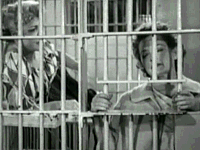
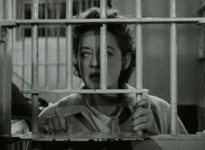





































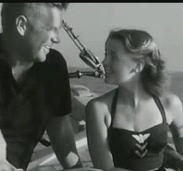




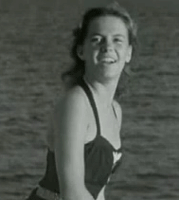
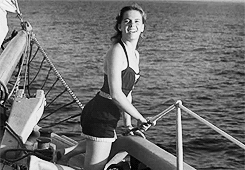













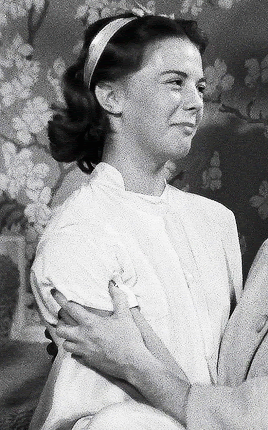



































.jpg)







.jpg)





.png)




.jpg)






.jpg)













.jpg)


.jpg)










.jpg)



.jpg)

.gif)

.jpg)



.jpg)

















.jpg)
.jpg)

.jpg)
.jpeg)